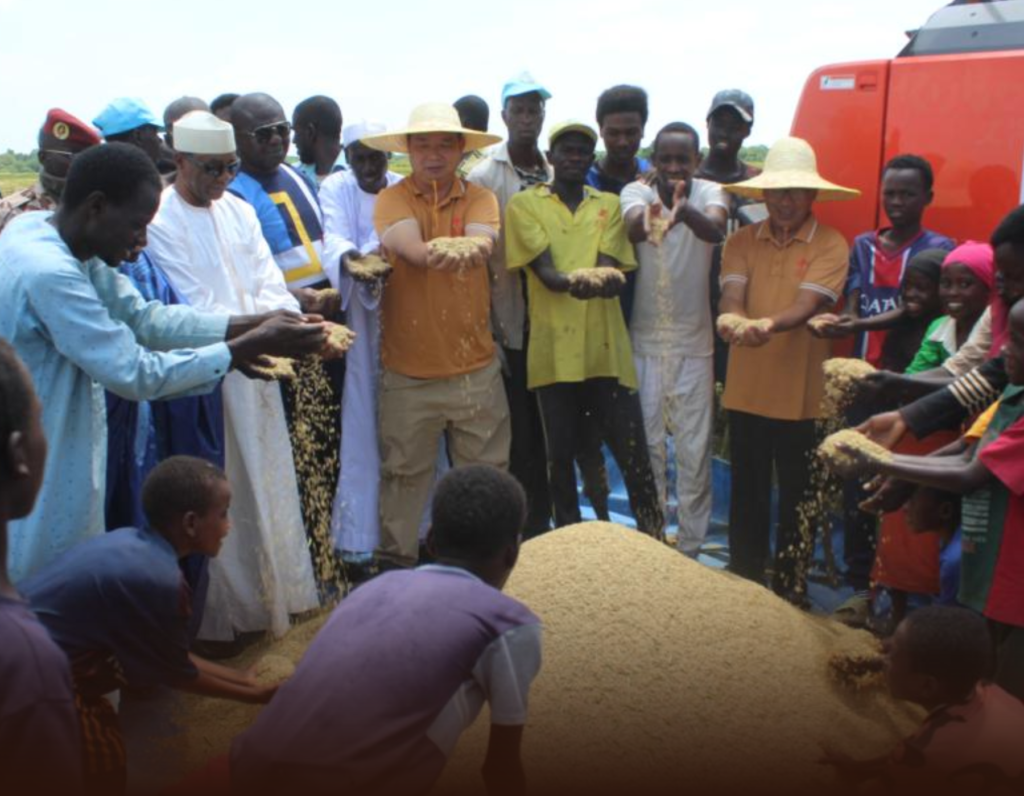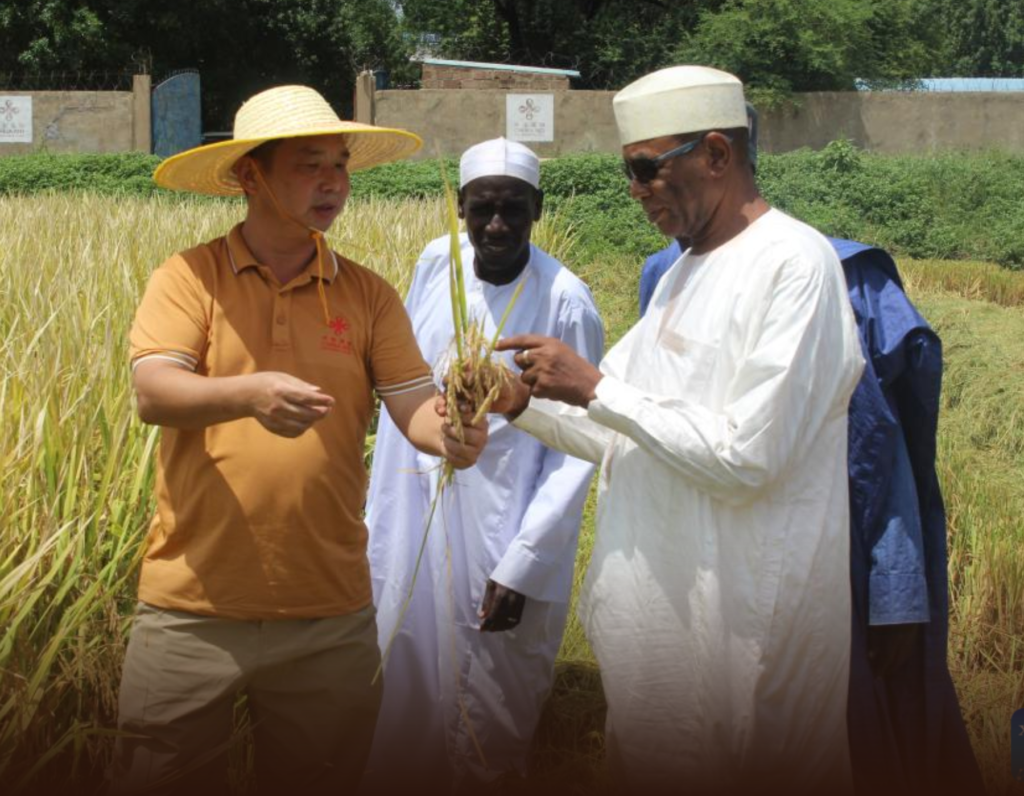A China-aided agricultural initiative in Chad is showing promising results in improving food security, increasing harvests, and empowering rural farmers, particularly in the Hadjer-Lamis Region’s Douguia District. Innovatively combining modern machinery, improved seed varieties, and local expertise, the project is helping transform rice cultivation in the country.
At the heart of the initiative is the Agricultural Technical Assistance Mission of China (MATACT), which has worked in Chad for nearly two decades. Among its interventions: introducing high-quality rice varieties; deploying rice transplanters and harvesters; and investing in farmland development and irrigation systems, steps that were once luxuries for many farmers.
Villagers in Midekin Village, Douguia District, celebrated a Harvest Festival with the roar of harvesters mixing with laughter and gratitude. As golden rice ears swayed in the fields, local authorities praised the project as a breakthrough; one that could drastically reduce Chad’s reliance on imported rice and help ensure stable, local food supplies.

The numbers tell a strong story: over 600,000 hectares of improved rice seeds have been sown across Chad; yields from Chinese rice varieties are exceeding local varieties by more than 35%; and the harvest results translate into an additional 1.2 million tonnes of food, enough to feed about 3 million people for a year.
Chinese experts emphasize that their cooperation is built on mutual benefit. They are not merely introducing foreign tools, but adapting them to Chad’s climate, training local farmers in seed selection, plowing, fertilization methods, and helping build capacity so that more Chadian producers can replicate these successes on their own.
In a country challenged by hot, dry weather, outdated techniques, and food import dependency, this project is a powerful example of how agricultural cooperation and investment can help unlock local capacity, improve diets, and deliver sustainable growth.




